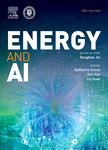The future of sustainable chemistry and process: Convergence of artificial intelligence, data and hardware
作者机构:Department of Chemical EngineeringLoughborough UniversityLoughborough LE113TUUnited Kingdom School of EngineeringThe University of EdinburghEdinburgh EH93FBUnited Kingdom Department of ChemistryLoughborough UniversityLoughborough LE113TUUnited Kingdom
出 版 物:《Energy and AI》 (能源与人工智能(英文))
年 卷 期:2020年第2卷第2期
页 面:167-174页
核心收录:
学科分类:07[理学] 0701[理学-数学] 070101[理学-基础数学]
基 金:Department of Chemical Engineering Loughborough University
主 题:Artificial intelligence In-/on-line monitoring Additive manufacturing
摘 要:Sustainable chemistry for renewable energy generation and green synthesis is a timely research topic with the vision to provide present needs without compromising future *** the era of Industry 4.0,sustainable chemistry and process are undergoing a drastic transformation from continuous flow system toward the next level of operations,such as cooperating and coordinating machine,self-decision-making system,autonomous and automatic problem solver by integrating artificial intelligence,data and hardware in the cyber-physical *** to the lack of convergence between the physical and cyber spaces,the open-loop systems are facing challenges such as data isolation,slow cycle time,and insufficient resources *** researches have been devoted to accelerating these cycles,reducing the time between multistep processes and real-time characterization via additive manufacturing,in-/on-line monitoring,and artificial *** final goal is to concurrently propose process recipes,flow synthesis,and molecules characterization in sustainable chemical processes,with each step transmitting and receiving data *** process is known as‘closing the loop’,which will potentially create a future lab with highly integrated systems,and generate a service-orientated platform for end-to-end synchronization and self-evolving,inverse molecular design,and automatic science *** perspective provides a methodical approach for understanding cyber and physical systems individually,enabled by artificial intelligence and additive manufacturing,respectively,in combination with in-/on-line ***,the future perspective and key challenges for the development of the closed-loop system in sustainable chemistry and process are discussed.



